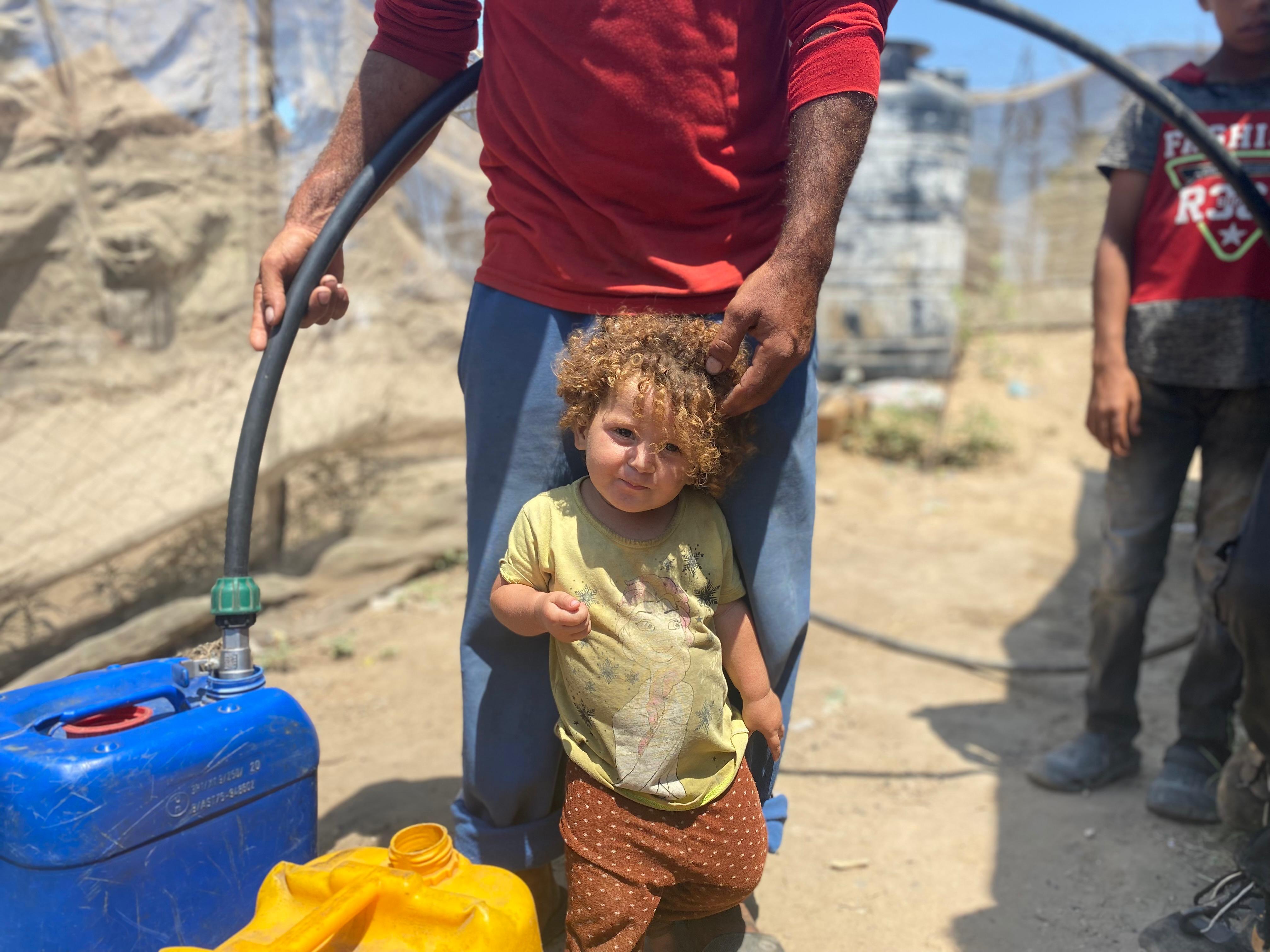What is the water crisis in Gaza?
The Gaza water crisis is a humanitarian emergency where over 97% of available water is unsafe for drinking. Caused by destruction of infrastructure and fuel blockades, families are surviving on less than 3 - 5 litres per person per day - far below the World Health Organisation emergency minimum.
What's Really Causing Gaza's Water Crisis?
This is about deliberate destruction.
Since October 2023, bombardments by the occupying forces have targeted Gaza's already fragile water and sanitation systems, and what's left behind is more than a crisis. It's a catastrophe.
According to the Palestinian Water Authority and PCBS, over 85% of Gaza's water and sanitation facilities are now damaged, destroyed, or out of service.
And while headlines may skim over it - we need to understand exactly what that means on the ground.
Where Does Gaza Get Its Water?
Gaza relies on three main water sources. Today, all three are nearly inaccessible:
Groundwater wells
Over 300 exist - but most are damaged or heavily polluted with salt and nitrates. Water from these wells need treatment before distribution.
Desalination plants
Bombed, fuel-starved, and barely operating. Without fuel, they sit silent. Small-scale desalination units, some solar or generator-powered, produce clean water in small but life-saving quantities.
Rainwater
Families now collect what they can - from tarps, buckets, and broken rooftops. It's not safe, but it's all they have.
So what's left? Not much. And that "not much" is being stretched between almost two million people.
The Reality on the Ground
Key Statistics (2025)
| Indicator | Status |
|---|---|
| Safe Drinking Water Access | Less than 3–5 litres per person/day |
| Desalination Plants | 2 of 3 non-functional; northern plant destroyed |
| Sewage Treatment | All 5 plants shut down; flooding reported |
| Infrastructure Damage | 85% of assets impaired |
| Fuel & Power | Blocked for over 100 days |
| Population Displacement | 1.9M+ displaced without consistent access |
What Happens When There's No Water?
What would you do if your children had nothing to drink… not for hours, but for days?
Here's what's happening:
This is more than hardship. It's a war on health, on dignity, on survival.
What Can You Do Right Now?
This is where you come in. While the crisis feels overwhelming, the solution starts with something simple: water.
Just $380 sends a water truck carrying 1,000 litres of clean, safe water
to reach displaced families in Rafah, Khan Younis, Jabalia, and beyond.
Your donation will:
Water Is a Right. Giving It Is a Mercy.
"The best charity is giving water to drink."
- Sunan Ibn Majah
Water isn't just a daily need - It's a test of compassion. A trust we must uphold.
And when you give it, you're doing more than quenching thirst.
You're saving lives. You're answering duas.
You're choosing mercy, in a world that desperately needs it.

